We all have different protein requirements, and some of us opt to use protein powders to increase our daily intake.
However, there are many different types of protein powder available, and some offer more than others.
In this article, we take an in-depth look at nine of the most popular options alongside their nutrition facts, amino acid profiles, and protein quality scores.
Evaluating the Quality of Each Protein Powder
To assess the quality of each protein powder, we will look at three main factors;
- Total protein: the amount of protein per serving.
- Amino acid profiles: the concentrations of each amino acid.
- Bioavailability: how bioavailable each protein powder is, as judged by modern protein scoring systems such as DIAAS (where possible) and PDCAAS.
For each protein powder, we will also provide full nutritional values per 30 grams, which represents a typical serving size.
All nutritional values come from the NCC Food and Nutrient Database.
Additional data on amino acid profiles and protein quality was attained from published research on commercially available plant proteins and protein quality studies.
What Are DIAAS and PDCAAS?
If anyone reading does not know what DIAAS and PDCAAS are, then here is a quick summary;
- DIAAS (Digestible Indispensable Amino Acid Scores): the most accurate way to measure protein bioavailability. DIAAS measures the digestibility of each amino acid at the end of the small intestine (1).
- PDCAAS (Protein Digestibility Corrected Amino Acid Score): this scoring system measures protein quality by analyzing the amino acid profile of the food. While useful, it does not factor anti-nutrients in food and how much protein our body can digest. For this reason, the FAO has proposed DIAAS as the optimal protein scoring system (2).
For both scores; the higher, the better. The maximum possible score for PDCAAS is 1.0, but DIAAS can go higher.
According to DIAAS, a rating of over 1.0 is a ‘high quality’ protein. Anything over 0.75 is medium quality, and anything below is low quality.
Let’s now take a look at some of the most common types of protein powder in alphabetical order;
1) Beef Protein Isolate
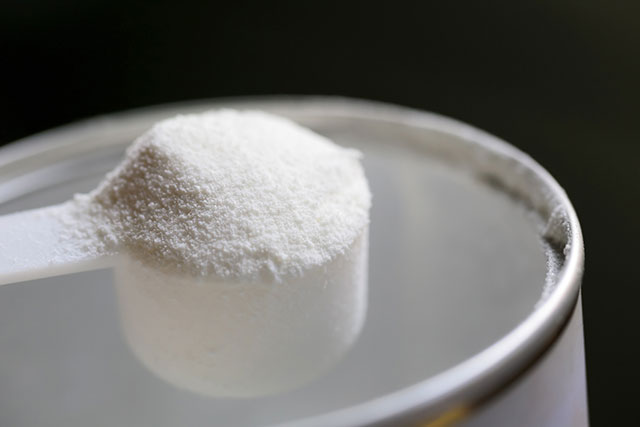
Beef protein isolate is a protein powder with a name that can easily confuse people.
From the name, some people may imagine dried and powdered steak.
However, beef protein isolate is just a flashier name for collagen, and it is primarily a source of glycine.
As a result, beef protein isolate is not a “complete” protein, and it does not contain meaningful amounts of the amino acids tryptophan and methionine (3).
Collagen can come from bones, connective tissues, and skin.
Nutrition and Amino Acid Profile
| Calories/Nutrient | Amount |
|---|---|
| Calories | 96 kcal |
| Carbohydrate | 0 g |
| Fat | 0 g |
| Protein | 24 g |
| Essential Amino Acids | Amount |
| Histidine | 0.70 g |
| Isoleucine | 1.24 g |
| Leucine | 2.62 g |
| Lysine | 1.10 g |
| Methionine | 0.82 g |
| Phenylalanine | 1.65 g |
| Threonine | 1.12 g |
| Tryptophan | 0.33 g |
| Valine | 1.66 g |
| Non-Essential Amino Acids | Amount |
| Alanine | 2.39 g |
| Arginine | 2.27 g |
| Aspartic acid | 1.55 g |
| Cysteine | 0.01 g |
| Glutamic acid | 3.15 g |
| Glycine | 5.57 g |
| Proline | 3.94 g |
| Serine | – |
| Tyrosine | 0.18 g |
Protein Quality
Since it does not contain adequate amounts of all essential amino acids, beef protein isolate does not do well on protein quality scores.
- Total protein per serve: 28 grams
- DIAAS score: 0 (low quality)
- PDCAAS score: 0
According to PDCAAS and DIAAS scores, hydrolyzed collagen has a protein quality score of 0 (4).
2) Brown Rice Protein Concentrate
Rice protein concentrate is a plant-based protein that is popular among vegetarians and those with dairy sensitivities.
Producers make this type of protein powder by treating rice with enzymes that separate the proteins from carbohydrates (5).
However, how does it compare to traditional dairy-based protein powders?
Let’s take a look.
Nutrition and Amino Acid Profile
| Calories/Nutrient | Amount |
|---|---|
| Calories | 90 kcal |
| Carbohydrate | 0 g |
| Fat | 0 g |
| Protein | 24 g |
| Essential Amino Acids | Amount |
| Histidine | 0.70 g |
| Isoleucine | 1.24 g |
| Leucine | 2.62 g |
| Lysine | 1.10 g |
| Methionine | 0.82 g |
| Phenylalanine | 1.65 g |
| Threonine | 1.12 g |
| Tryptophan | 0.33 g |
| Valine | 1.66 g |
| Non-Essential Amino Acids | Amount |
| Alanine | 1.76 g |
| Arginine | 2.50 g |
| Aspartic acid | 2.54 g |
| Cysteine | 0.53 g |
| Glutamic acid | 5.54 g |
| Glycine | 1.24 g |
| Proline | 1.46 g |
| Serine | 1.53 g |
| Tyrosine | 1.69 g |
Protein Quality
As shown, rice protein concentrate has a lower overall protein content than beef protein isolate.
However, it has a much better amino acid profile. The rate-limiting amino acid in brown rice protein is lysine (6).
- Total protein per serve: 24 grams
- DIAAS: 0.37 (low quality)
- PDCAAS: 0.42
As shown by the protein quality scores, rice protein concentrate is not a high-quality protein powder (4).
3) Egg Protein Powder
Egg white protein is another animal-based protein primarily made from dried egg whites.
The production process of egg protein powder involves spray drying, which is the same process used to make powdered milk products (7).
Nutrition and Amino Acid Profile
| Calories/Nutrient | Amount |
|---|---|
| Calories | 96.3 kcal |
| Carbohydrate | 0.2 g |
| Fat | 0.03 g |
| Protein | 24.0 g |
| Essential Amino Acids | Amount |
| Histidine | 0.55 g |
| Isoleucine | 1.28 g |
| Leucine | 2.00 g |
| Lysine | 1.50 g |
| Methionine | 0.89 g |
| Phenylalanine | 1.39 g |
| Threonine | 1.07 g |
| Tryptophan | 0.39 g |
| Valine | 1.64 g |
| Non-Essential Amino Acids | Amount |
| Alanine | 1.46 g |
| Arginine | 1.37 g |
| Aspartic acid | 2.42 g |
| Cysteine | 0.64 g |
| Glutamic acid | 3.10 g |
| Glycine | 0.82 g |
| Proline | 0.91 g |
| Serine | 1.62 g |
| Tyrosine | 0.96 g |
Protein Quality
Egg whites offer a good quality source of protein.
Firstly, eggs contain all nine essential amino acids in sufficient amounts.
- Total protein per serve: 24 grams
- DIAAS: 1.13 (high quality)
- PDCAAS: 1.00
Due to the amino acid profile of egg protein, it is a high-quality and bioavailable protein (4).
On the negative side, egg white protein powder is prone to clumping and does not mix well. It can also lead to side effects, such as bloating and nausea (8).
4) Hemp Protein
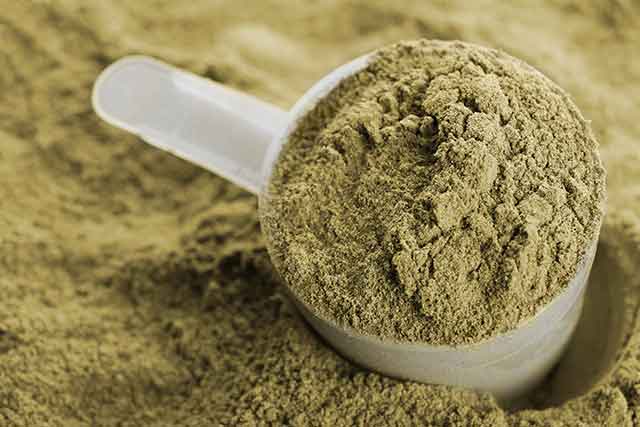
Hemp protein powder comes from hemp seeds and combines two forms of protein; albumin and edestin (9).
Hemp is one of the newer proteins on the market, and it is suitable for vegans.
Nutrition and Amino Acid Profile
| Calories/Nutrient | Amount |
|---|---|
| Calories | 112.50 kcal |
| Carbohydrate | 9.38 g |
| Fat | 2.81 g |
| Protein | 13.13 g |
| Essential Amino Acids | Amount |
| Histidine | 0.47 g |
| Isoleucine | 0.66 g |
| Leucine | 1.03 g |
| Lysine | 0.75 g |
| Methionine | 0.38 g |
| Phenylalanine | 0.75 g |
| Threonine | 0.56 g |
| Tryptophan | 0.19 g |
| Valine | 0.75 g |
| Non-Essential Amino Acids | Amount |
| Cysteine | 0.19 g |
| Tyrosine | 0.56 g |
Protein Quality
As shown in the nutritional values, hemp is not an isolated source of protein, and it also contains carbohydrate and fat.
For this reason, the total protein per serving is lower than most other protein powders.
- Total protein per serve: 15.0 grams
- DIAAS: N/A
- PDCAAS: 0.63 – 0.66
The PDCAAS score for hemp protein ranges from 0.63 to 0.66, but there are no available DIAAS scores. The limiting amino acid in hemp protein is lysine (10).
5) Milk Protein Isolate
Milk protein isolate is a concentrated form of milk solids that contains both whey and casein proteins.
As a result, it contains the same types of protein as found in regular milk.
Nutrition and Amino Acid Profile
| Calories/Nutrient | Amount |
|---|---|
| Calories | 104 kcal |
| Carbohydrate | 0 g |
| Fat | 0 g |
| Protein | 26.1 g |
| Essential Amino Acids | Amount |
| Histidine | 1.20 g |
| Isoleucine | 1.33 g |
| Leucine | 2.58 g |
| Lysine | 2.11 g |
| Methionine | 0.78 g |
| Phenylalanine | 1.28 g |
| Threonine | 1.20 g |
| Tryptophan | 0.42 g |
| Valine | 1.70 g |
| Non-Essential Amino Acids | Amount |
| Alanine | 0.89 g |
| Arginine | 1.10 g |
| Aspartic acid | – |
| Cysteine | 0.21 g |
| Glutamic acid | 5.50 g |
| Glycine | 0.50 g |
| Proline | 2.61 g |
| Serine | 1.46 g |
| Tyrosine | 1.38 g |
Protein Quality
Similar to all dairy products, milk protein isolate is an excellent source of bioavailable amino acids;
- Total protein per serve: 26.1 grams
- DIAAS: 1.18 (high quality)
- PDCAAS: 1.00
6) Pea Protein Concentrate
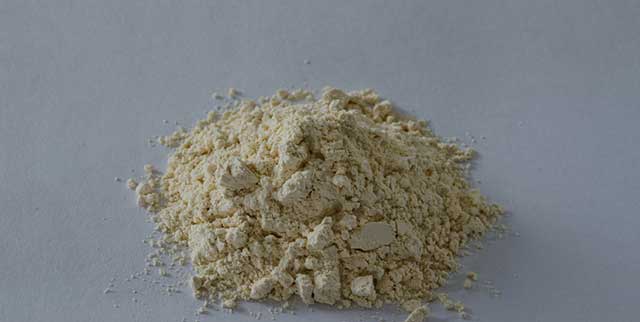
Pea protein is another of the more recently trendy protein powders, and it is also the key ingredient in Beyond Meat burgers.
The production process for this protein is quite complex, and it involves (11);
- Drying the peas
- Removing the outer fiber-based layers
- Milling and then separating the proteins and carbohydrates
- Using an isoelectric precipitation method to isolate the protein
Nutrition and Amino Acid Profile
| Calories/Nutrient | Amount |
|---|---|
| Calories | 111 kcal |
| Carbohydrate | 0.60 g |
| Fat | 1.65 g |
| Protein | 24.0 g |
| Essential Amino Acids | Amount |
| Histidine | 0.45 g |
| Isoleucine | 1.14 g |
| Leucine | 1.98 g |
| Lysine | 1.89 g |
| Methionine | 0.18 g |
| Phenylalanine | 1.20 g |
| Threonine | 0.81 g |
| Tryptophan | 0.18 g |
| Valine | 1.51 g |
| Non-Essential Amino Acids | Amount |
| Alanine | 0.99 g |
| Arginine | 1.86 g |
| Aspartic acid | 2.58 g |
| Cysteine | 0.30 g |
| Glutamic acid | 3.60 g |
| Glycine | 0.84 g |
| Proline | 0.81 g |
| Serine | 1.95 g |
| Tyrosine | 0.96 g |
Protein Quality
Pea protein is relatively low in methionine and cysteine.
However, the amino acid profile and bioavailability are reasonably good for a plant-based protein powder.
- Total protein per serve: 24.0 grams
- DIAAS: 0.82 (medium quality)
- PDCAAS: 0.89
7) Skim Milk Protein Powder
Skim milk protein is another dairy-based protein powder that is primarily a source of casein.
Although not as common as whey protein, casein-based proteins are still a popular choice in the world of supplements.
One of the main benefits of casein is that it is a slow-digesting protein that steadily releases amino acids into the blood (12).
For this reason, many athletes/bodybuilders take a source of casein before bed.
Nutrition and Amino Acid Profile
| Calories/Nutrient | Amount |
|---|---|
| Calories | 110 kcal |
| Carbohydrate | 0 g |
| Fat | 0 g |
| Protein | 26.0 g |
| Essential Amino Acids | Amount |
| Histidine | 0.75 g |
| Isoleucine | 1.33 g |
| Leucine | 2.36 g |
| Lysine | 1.94 g |
| Methionine | 0.70 g |
| Phenylalanine | 1.26 g |
| Threonine | 1.07 g |
| Tryptophan | 0.33 g |
| Valine | 1.73 g |
| Non-Essential Amino Acids | Amount |
| Alanine | 0.72 g |
| Arginine | 0.89 g |
| Aspartic acid | 1.70 g |
| Cysteine | 0.09 g |
| Glutamic acid | 5.20 g |
| Glycine | 0.44 g |
| Proline | 2.45 g |
| Serine | 1.47 g |
| Tyrosine | 1.35 g |
Protein Quality
According to protein quality scores, skim milk protein has good bioavailability.
However, it doesn’t quite match up to other dairy protein powders such as whey and milk protein (13);
- Total protein per serve: 26.0 grams
- DIAAS: 1.05 (high quality)
- PDCAAS: 1.0
8) Soy Protein Isolate
When it comes to plant-based proteins, soy protein isolate is probably the highest quality.
With the first production starting in 1959, soy protein isolate has been under production for several decades now (14).
Nutrition and Amino Acid Profile
| Calories/Nutrient | Amount |
|---|---|
| Calories | 114 kcal |
| Carbohydrate | 1.20 g |
| Fat | 0.30 g |
| Protein | 27.0 g |
| Essential Amino Acids | Amount |
| Histidine | 0.78 g |
| Isoleucine | 1.26 g |
| Leucine | 2.31 g |
| Lysine | 1.92 g |
| Methionine | 0.39 g |
| Phenylalanine | 1.62 g |
| Threonine | 1.08 g |
| Tryptophan | 0.30 g |
| Valine | 1.35 g |
| Non-Essential Amino Acids | Amount |
| Alanine | 1.23 g |
| Arginine | 2.31 g |
| Aspartic acid | 3.60 g |
| Cysteine | 0.39 g |
| Glutamic acid | 6.12 g |
| Glycine | 1.23 g |
| Proline | 1.59 g |
| Serine | 1.68 g |
| Tyrosine | 1.23 g |
Protein Quality
Soy protein scores best among the plant protein powders for amino acid bioavailability.
It is also very high in protein per serving.
- Total protein per serve: 27.0 grams
- DIAAS: 0.90 (medium quality)
- PDCAAS: 0.98
See this complete guide to soy protein supplementation for more information.
9) Whey Protein Concentrate
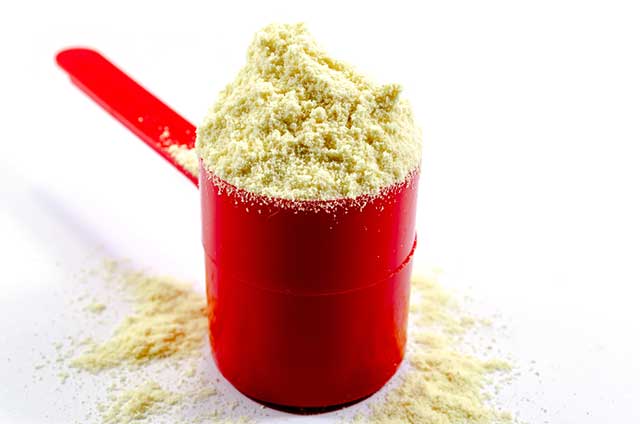
Whey protein concentrate is one of the most common types of protein powder, and it is a concentrated source of whey protein from milk.
However, whey concentrate is not a pure source of protein. It also contains small amounts of fat and carbohydrate.
Nutrition and Amino Acid Profile
| Calories/Nutrient | Amount |
|---|---|
| Calories | 120 kcal |
| Carbohydrate | 3.76 g |
| Fat | 0.92 g |
| Protein | 22.8 g |
| Essential Amino Acids | Amount |
| Histidine | 0.45 g |
| Isoleucine | 1.13 g |
| Leucine | 2.17 g |
| Lysine | 1.96 g |
| Methionine | 0.43 g |
| Phenylalanine | 0.75 g |
| Threonine | 1.15 g |
| Tryptophan | 0.47 g |
| Valine | 1.13 g |
| Non-Essential Amino Acids | Amount |
| Alanine | 0.99 g |
| Arginine | 0.64 g |
| Aspartic acid | 2.23 g |
| Cysteine | 0.41 g |
| Glutamic acid | 4.07 g |
| Glycine | 0.41 g |
| Proline | 1.36 g |
| Serine | 1.68 g |
| Tyrosine | 0.58 g |
Protein Quality
Whey protein concentrate is a high-quality protein powder, and it contains somewhere in the region of 75-85% protein by weight.
Whey concentrate contains all the essential amino acids in sufficient amounts, and it is also highly bioavailable.
Here are the protein quality values;
- Total protein per serve: 22.8 grams
- DIAAS: 1.07 (high quality)
- PDCAAS: 1.0
10) Whey Protein Isolate
There is little difference between whey protein concentrate and whey isolate.
In short; isolate undergoes slightly more processing to fully “isolate” the protein.
Therefore, whey isolate contains more protein—around 85-90% by weight—and less carbohydrate and fat.
Nutrition and Amino Acid Profile
| Calories/Nutrient | Amount |
|---|---|
| Calories | 118 kcal |
| Carbohydrate | 0.54 g |
| Fat | 0.54 g |
| Protein | 26.8 g |
| Essential Amino Acids | Amount |
| Histidine | 0.45 g |
| Isoleucine | 1.68 g |
| Leucine | 2.91 g |
| Lysine | 2.91 g |
| Methionine | 0.60 g |
| Phenylalanine | 0.87 g |
| Threonine | 1.83 g |
| Tryptophan | 0.48 g |
| Valine | 1.38 g |
| Non-Essential Amino Acids | Amount |
| Alanine | 1.38 g |
| Arginine | 0.63 g |
| Aspartic acid | 2.91 g |
| Cysteine | 0.78 g |
| Glutamic acid | 5.13 g |
| Glycine | 0.48 g |
| Proline | 1.65 g |
| Serine | 1.11 g |
| Tyrosine | 0.81 g |
Protein Quality
Whey protein isolate contains a large concentration of protein, and it has excellent digestibility.
- Total protein per serve: 26.8 grams
- DIAAS: 1.09 (high quality)
- PDCAAS: 1.0
Which Protein Powder Is the Best?
There are a lot of different things to consider when determining which protein is the best option.
Firstly, the table below shows the ranking of each protein powder in order of protein bioavailability;
| Position | Type of Protein Powder | DIAAS | PDCAAS | Protein |
|---|---|---|---|---|
| #1 | Milk Protein Isolate | 1.18 | 1.0 | 26.1 g |
| #2 | Egg Protein Powder | 1.13 | 1.0 | 24.0 g |
| #3 | Whey Protein Isolate | 1.09 | 1.0 | 26.8 g |
| #4 | Whey Protein Concentrate | 1.07 | 1.0 | 22.8 g |
| #5 | Skim Milk Protein | 1.05 | 1.0 | 26.0 g |
| #6 | Soy Protein Isolate | 0.90 | 0.98 | 27.0 g |
| #7 | Pea Protein | 0.82 | 0.89 | 24.0 g |
| #8 | Hemp Protein | N/A | 0.63-0.66 | 15.0 g |
| #9 | Rice Protein Concentrate | 0.37 | 0.42 | 24.0 g |
| #10 | Beef Protein Isolate | 0 | 0 | 24.0 g |
As shown in the table, the best protein powder for bioavailability of amino acids is milk protein isolate.
However, there are some extra options also to consider.
Animal-Based vs. Plant-Based Protein Powders
Although we can get protein from animal and plant foods, animal-based proteins typically offer the most.
However, it is possible to get enough protein from any of these supplements.
For those who prefer to avoid animal foods, then soy protein isolate appears to be the best plant-based protein powder.
Digestion Speed
Milk protein isolate offers the best digestibility, but some people may prefer to select a protein based on digestion speed.
On this note, the fastest digestion and absorption rate is for whey protein, while casein is the slowest-digesting protein (15).
Final Thoughts
Whole foods are the ideal protein sources, but protein supplements can be a useful tool for people trying to increase intake.
Unlike some whole food sources of protein, protein powders typically provide protein for relatively few extra calories.
There are many different types of protein powder available on the market.
Generally speaking, the best quality protein powders are dairy-based options like milk protein and whey.
However, all of these options may appeal to different people, and all can contribute to the total protein intake.

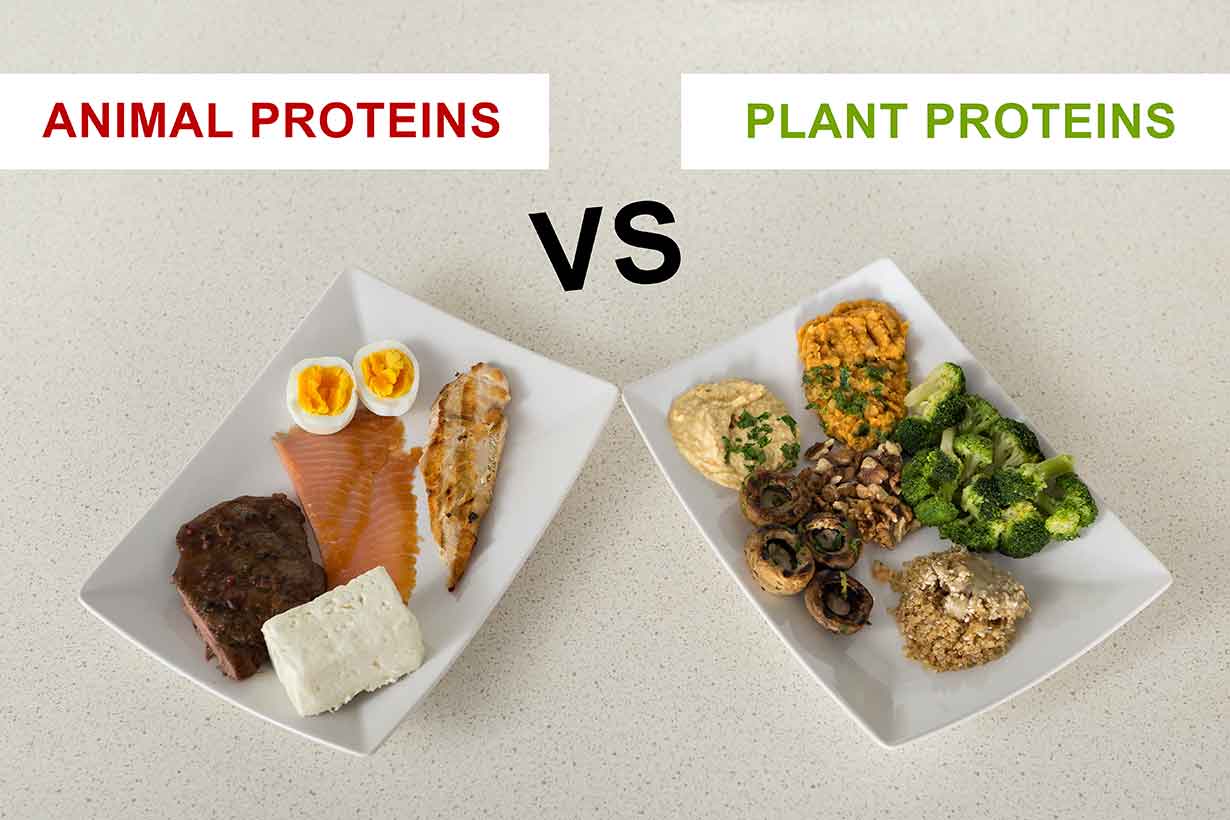

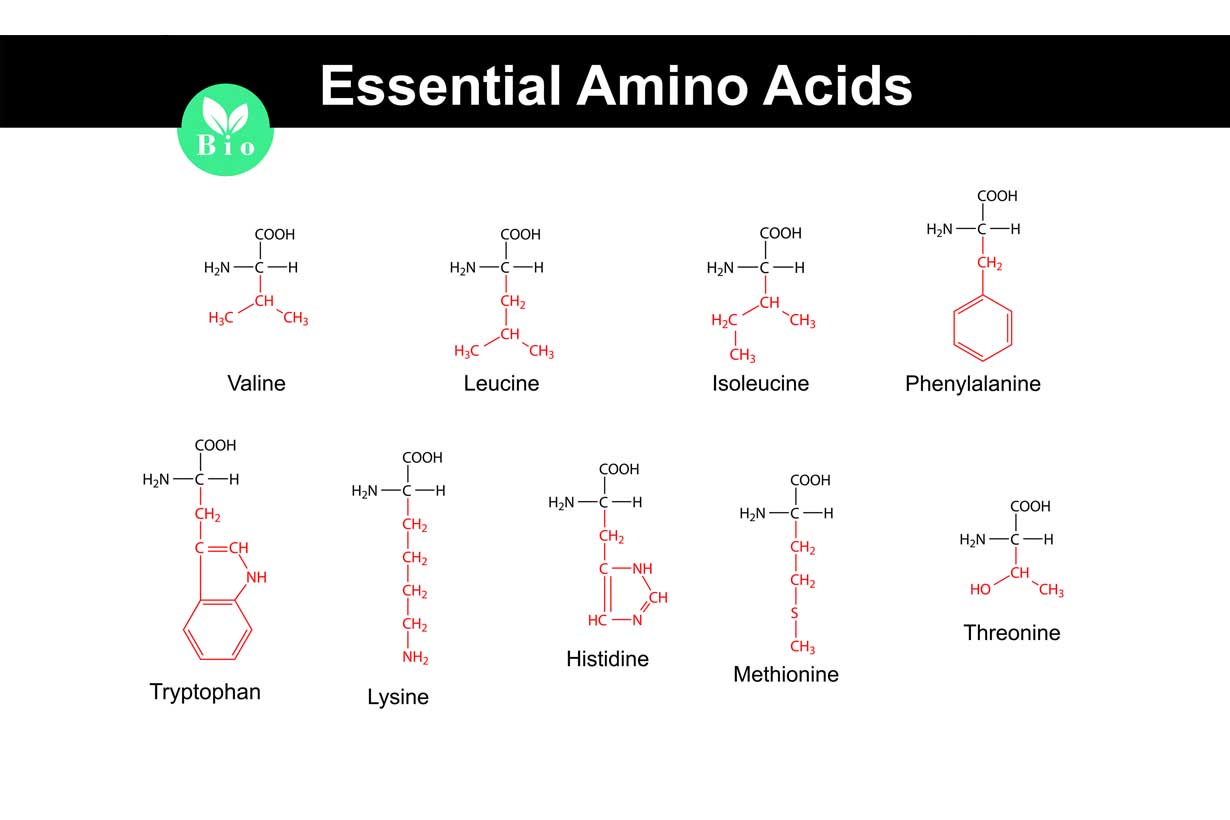
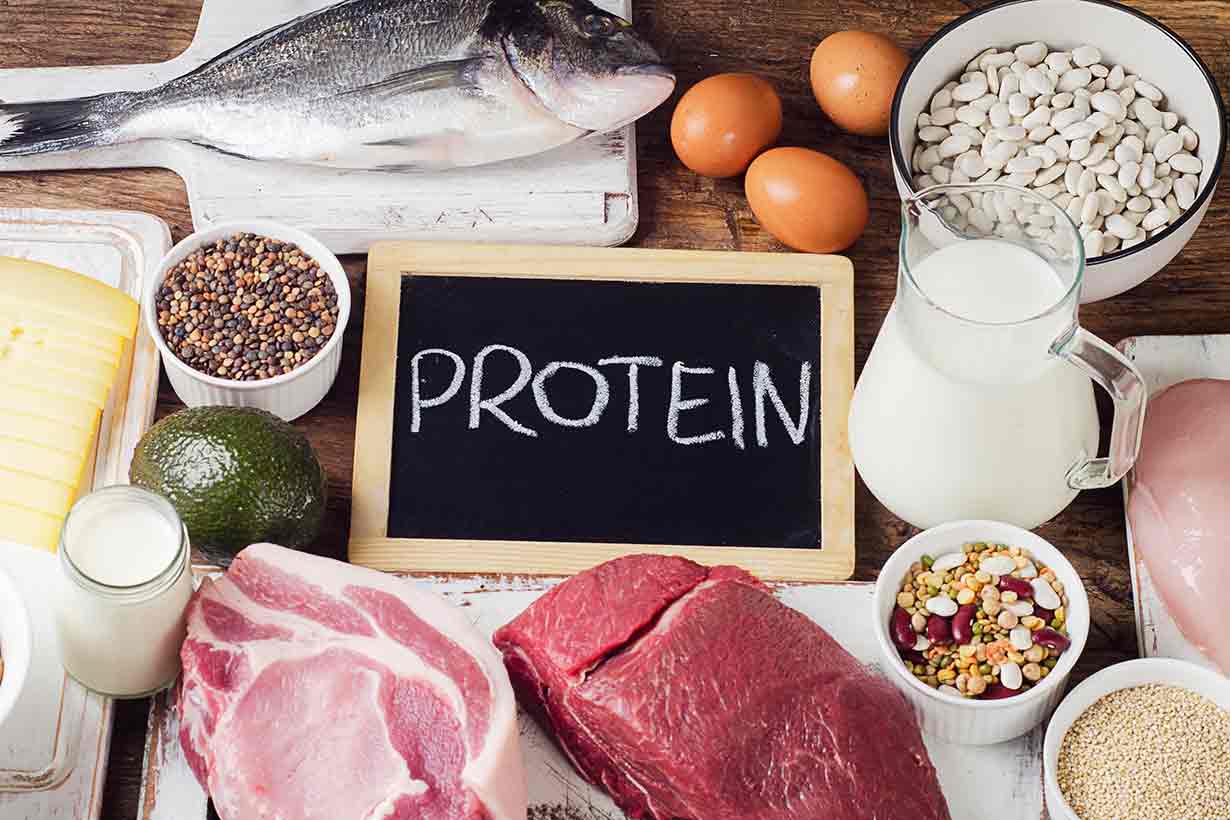
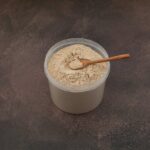



Thank you. Very interesting
Thanks for the information, I would recommend to anyone else doing this research to checkout the effect on your body with taking these different supplements specifically plant vs animals based. Peace and best of wishes on your journey to whole health.